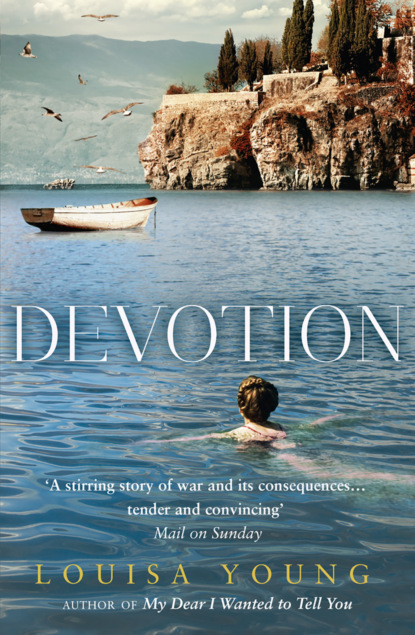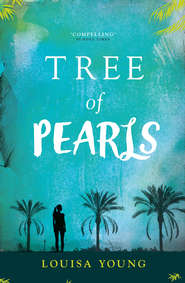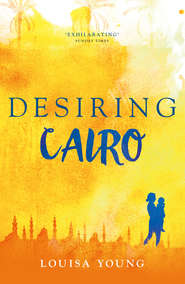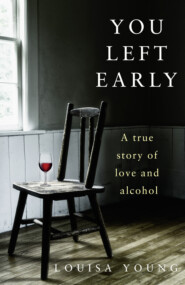По всем вопросам обращайтесь на: info@litportal.ru
(©) 2003-2024.
✖
Devotion
Настройки чтения
Размер шрифта
Высота строк
Поля
She really wished he were with them. But so be it. His inability to be there with them was exactly the kind of thing that they, nine years into their marriage, could smile about and accept. She could accept all kinds of things now. She had accepted Julia’s death – because there’s nothing to be done about it. And Riley’s wounds – because look how he is overcoming them – though she’d hesitate to use the word ‘accept’ to describe how he was about it. But his practicality, his everyday perseverance … yes, there were times when she didn’t think about it, and, she thought, nor did he. And she accepted not being a great artist – because I am an artist, and to be an artist at all, of any kind, and to be paid for it, is a joy and an adventure. And being mother only to other people’s children – ditto.
But all that said, Rome stirred her up.
Tom woke early and tried to head off out without being seen, but Susanna spotted him, sat him down and fed him hard cinnamon buns and milky coffee, by which time the girls and Nadine had appeared, so after a frustrating delay – Down to Gehenna or up to the throne, he travels the fastest who travels alone, Tom muttered to himself – they were all sent out to acquire onions. Tom and Kitty saw, for the first time, places that would become so familiar later: the butter-coloured synagogue, the small local market and the big astonishing one at Campo dei Fiori, the piazzas and alleys and temples along the way, the giant pines the shape of umbrellas, the scraps of road and ancient wall for larking on. Sheep asleep in the shade of gigantic arches. A cart piled high with baskets of chickens. Nadine walked like a dreamer, smiling and pointing things out. Tom felt her love like a hand on the back of his collar.
They stopped at a café for cool bittersweet spremuta di limone, made from huge lumpy Sicilian lemons with leaves on their woody stalks. Kitty’s feet, swollen in her little brown sandals and speckled with mosquito bites, were hurting, so Tom and Nenna were allowed to go on alone.
He walked beside her, suddenly silent. She wasn’t chatty as he had seen her be with Kitty. He didn’t know much about girls. Some chaps had sisters, some of whom giggled. She didn’t seem to be like that.
‘Vuoi vedere le statue parlanti?’ she said, suddenly.
He looked blankly at her.
‘Sì,’ he said, and thought quickly about it in Latin: parlanti – from parlare, to talk, sounds like a – not a past participle, what’s it called – anyway, the -ing one. Talking. And did she say vedere? To see?
‘Vedere parlanti?’ he said.
‘Statue parlanti,’ she said. ‘Vuoi vederle?’
Statue. Statu-ay. Statue?
She was leading him: up streets, down alleys, round carts, through crowds, through a great marketplace, where onions were forgotten. They came out into a long piazza like a racetrack, with three fountains down the centre; mighty stone figures and dolphins vivid among the water and green streaks of weed. All around, Latin was written across rearing buildings. Tom recognised it from a print Riley had at home, in which it was flooded and filled with boats: Piazza Navona.
See statues talking?
He smiled and imagined how a statue might lean down to you, stone lips moving like flesh, voice creaky and dry, talking Latin. He spun round, his hands in his pockets, to look at everything.
In a small piazza beyond, Nenna stopped, and said, ‘Ecco. Pasquino.’
It was a statue: battered and ancient, with no arms and not much in the way of legs, twisted on a sort of staircase of a plinth which was pasted all over, like the wall behind him, with printed leaflets and notices. A lot of people were bustling about, with bicycles and shopping baskets, and some men in vests and blue trousers were digging a hole in the road.
‘La statua parlante,’ she said.
Tom thought, It must be an oracle, like Delphi or something. There’s probably a procedure—
‘Do you ask it questions?’ he said.
She raised her eyebrows at him, and looked brave. ‘Va be,’ she said, and straightened her shoulders. Then, with a consciously respectful demeanour and a glance back at Tom, she went up to the statue, pushed herself up on tiptoe and called out, softly, towards Pasquino’s distant and lichened ear.
He did not answer.
‘Is that it?’ Tom said, and Nenna grinned and said ‘Yes!’
‘Statua non parla,’ Tom said, having been working on the Latin phrase since seven streets ago.
‘Può darsi una risposta,’ she said, seemingly perfectly satisfied, and Tom realised that he wasn’t that concerned about the statue, or the tradition, or the superstition, or even the answer. He wanted to know what she had asked.
‘Quale est domandum tuum?’ he asked, and she squinted at him.
‘Domando tuo?’ he said. ‘Domanda tua?’ He knew Italian had vowels where Latin used us or um. Couldn’t remember the gender of the word for question though.
Nenna slid her eyes sideways, and said: ‘Segreto.’ Secret.
He wondered whether to tease her to get it out of her. Teasing, in this Latin/Italian mixture? He didn’t think he was up to it. But he wanted to know. He couldn’t let a girl keep a secret from him. It would be undignified.
They walked in silence for a while, through the hot bright streets, turning into the black shadows beneath high yellow palazzi.
Other than physical force and language, what other tools did he have? He was thinking furiously. Nenna glanced at him.
Perhaps she wants to tell me. Why else would she have taken me there?
So I must just give her another opportunity.
As they rejoined the river, he turned to her and said: ‘Io credo che tuo secretus dire a me volunta. Se non volunta, perche me ad statuam parlante portare?’ Which he hoped meant. ‘I believe you want to tell me your secret. If not, why take me to the talking statue?’
She laughed, of course. And then she stopped laughing, and she stopped and thought for a bit, and then she took him by the hand, which was slightly alarming, and pulled him across the road and into a church: cool, dim, empty. Glancing around, she spotted what she was after, and led him over there.
‘Lamia domanda,’ she said, and looked at him fiercely. He nodded.
She pointed at a painting of the Madonna and child, folded her arms in the universal sign of holding a baby, and made the universal rocking-the-baby motion. ‘Bambino Gesù,’ she said.
He got it. ‘Baby Jesus.’
She pointed to herself. ‘Io,’ she said.
‘You,’ he said.
She drew her finger sharply across her throat. The universal sign of murder.
And that puzzled him.
And she made the universal hands-out palms-up shrug gesture of not knowing. And stared, waiting for his answer.
‘La Mia domanda,’ she said very clearly, ‘era se io ho ammazzato il bambino Gesù.’
From a language point of view he understood perfectly. Her question had been, did she kill baby Jesus?
It was from every other point of view that he was confused – so much so that he thought he must have got it wrong. But the only alternative was did Baby Jesus kill her, which seemed even more unlikely. But then many things are unlikely.
They left the church, slipping out into the day which had grown brighter and hotter even during the few minutes they had been inside the church.
‘Why?’ he asked. ‘Your question. Tua domanda. Why?’
Nenna scuffed her shoes on the road, and did a little dance step. She wasn’t looking at him.
‘L’ha detto un ragazzo a scuola,’ she murmured, and would say no more.
He held on to the phrase.











